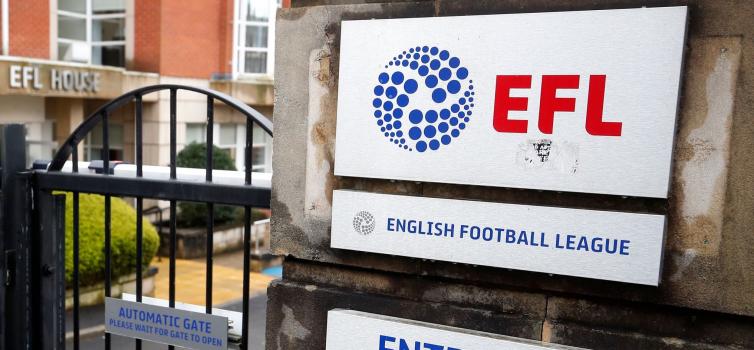Twice-weekly tests re-introduced by EFL - paid for by the PFA
Articles / /

Written by Training Ground Guru — January 6, 2021
TWICE-WEEKLY testing for staff and players is to be reintroduced in the Championship, League One and League Two from Monday, the EFL and PFA have announced.
The tests have initially been procured from the private sector and will be fully funded by the PFA following discussions over the last 72 hours. Football League clubs had been calling on the PFA to foot the bill for the twice-weekly tests, which it is estimated will cost a total of £5 million to the end of the season.
EFL Chief Executive Trevor Birch said: “With the new strain of the virus taking hold across parts of the country, it is now clear from our discussions with our medical advisors and public health officials that additional testing, operated in conjunction with strict protocols, may prove beneficial in the immediate short-term.
“I’d like to take this opportunity to thank the PFA for their support in helping us to finalise a position on testing across all three divisions on a twice-weekly basis. We will continue to review the situation and make any adjustments or changes as circumstances dictate with the health and well-being of our players and Club staff the overwhelming priority.”
PFA Chief Executive Gordon Taylor added: “In the light of the current increase in Covid-19 cases and the resulting further tightening of government regulations, the PFA and the EFL have agreed enhanced measures to help protect players, staff and their families.
“Football has provided temporary relief for many fans during the lockdown. PFA members, alongside millions of people, have worked hard and played a positive role throughout the pandemic.
“We believe that this comprehensive and expansive approach to testing will help support clubs and be an important factor in maintaining fixtures and ensuring that football can continue during this challenging period.”
EFL Medical Advisors Dr Richard Higgins and Dr Subhashis Basu said: “The emergence of a new variant of Covid-19 and the current speed at which the virus is spreading means we are going to have to be prepared to review and implement new practices to ensure we have appropriate measures in place at any given time.
“Lateral flow testing is an important adjunct in our ability to identify infected individuals at an early stage, particularly those with high viral loads as is more common with this new variant, as these people are thought to be most infectious.
“In addition to hand hygiene, through consistently reinforcing good behavioural practices including physical distancing, wearing facial coverings indoors, reducing time spent in enclosed areas and improving building ventilation, we are taking the most effective steps to reduce further transmission.”
New protocols introduced include indoor facilities being closed, gyms being used only if well-ventilated and clubs using separate or multiple vehicles to travel to fixtures.



-1.png)





